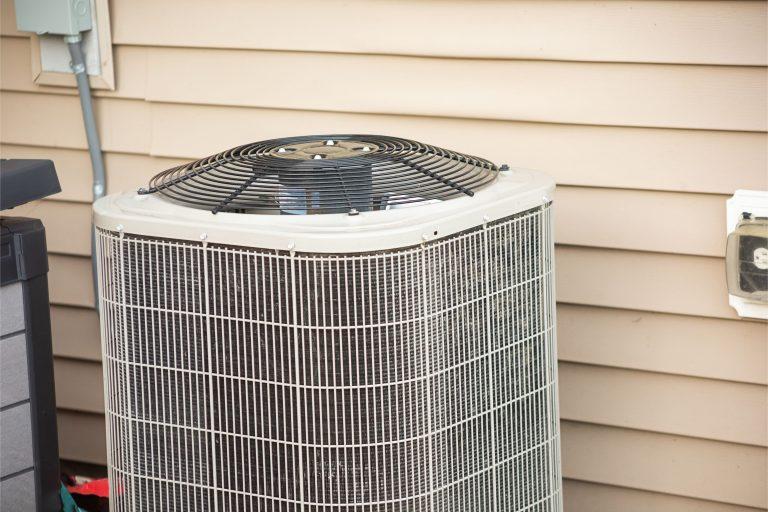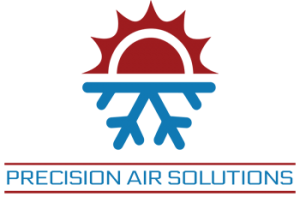- (707)-741-1993
- chris@precisionhvacco.com
- Serving Solano & Surrounding Counties

10 Habits that Prevent AC Issues and Failures in Future
Imagine taking a rest from a long day in the unforgiving summer heat in the comfort of your air-conditioned room. Then boom! Your AC breaks down leaving you at the mercy of the hostile heat. It’s never a pleasant experience.
To defend against such a scenario, and ensure an easy-going run of your AC all year round, you need to be ready to take good preventive measures.
By maintaining good preventive measures, you can foresee pitfalls even before they manifest. This will help you save costs on regular repairs and replacements, and increase the duration of your AC.
In this blog post, we will take a dive into those preventive measures that will help you prevent AC Issues. And ensure a comfy living environment for you and your loved ones.
Let’s dive.
1. Check your air filter regularly
This is one of the most important steps to take to keep your AC in top-notch condition. Frequently clean or replace the air filter.
Filters are meant to act as a blockade against dust and debris. And prevent them from entering our home through the AC. Overtime, these filters get clogged and obstruct airflow, compelling your AC to work harder than before and consume more energy. Dirty filters can also lead to poor indoor air quality, sick building syndrome, and can escalate respiratory issues.
It is vital you clean or replace your filters every 30-60 days, to maintain proper airflow, reduce the cost of energy and enjoy healthier, cleaner air.
2. Keep the areas of your AC unit clear
Make sure that there is no dirt, leaves or debris or other objects littering the outside area around your AC unit.
Dirt buildup leads to obstruction of air flow from the outside AC unit to your indoor space. These obstructions cause your AC to perform poorly. Frequently examine your AC unit area and remove any dirt around it.
Gently clean the unit using a soft brush or wipe to guarantee optimal heat exchange and effective operation.
3. Check your thermostat
A faulty thermostat can create an illusion of a faulty AC unit. And sometimes it’s hard to differentiate. Ensure that your thermostat is working correctly and set at a reasonable temperature that provides comfort without overburdening the unit. This will also help you reduce energy consumption.
Additionally, using programmable thermostats can help you set different temperatures that match your daily routines. For example, if no one is ever at home from 8am to 2pm on Mondays, with your thermostat, you can set your AC not to cool at that time. This can save you money on energy bills and extend the life of your AC unit.
4. Schedule professional maintenance and inspection
While you can perform some maintenance tasks yourself, it is very important to schedule professional maintenance and inspections preferably twice a year. Once before the start of summer and once before the start of winter.
A certified HVAC technician can inspect your system to identify potential issues and perform thorough maintenance tasks that go beyond the scope of regular cleaning.
They can check refrigerant levels, inspect electrical connections, lubricate moving parts and ensure everything is running smoothly.
5. Check and seal ducts
The ducts are tunnels through which cool air reaches every corner of your home. Sometimes these tunnels develop leaks or cracks, allowing precious cool air to escape and causing your AC to do extra work in cooling. And not just that, causing you to spend more on energy bills.
Routinely check your ducts for any visible damage or leaks and seal them to ensure that your AC performs at its best.
6. Protect against power surges
Power surges act as a serious threat to your AC system. They can damage some sensitive electrical components of the AC unit.
Buying surge protector devices guards your unit against sudden voltage spikes caused by electrical malfunctions or lightning strikes.
These devices act as a defense, absorbing excess voltage away from your AC system, thereby preventing costly repairs and maintenance. It’s better to invest the little in power surges than to pay through your nose in fixing your AC.
7. Give adequate ventilation and insulation
Appropriate ventilation and insulation plays a significant role in maintaining a comfortable indoor environment. Make sure that the air outlets are not obstructed by furniture or curtains, allowing air to circulate freely.
Furthermore, check for any air leakage around doors and windows and seal them. Well-insulated spaces require less energy to cool, bringing about a more efficient and cost-effective AC system.
8. Shun excess indoor heat
If possible, don’t use gadgets that produce a large quantity of heat like washing machines, ovens or electric boilers during the day.
Slight changes in lifestyle like these can help greatly with cooling your space. This will make your AC work less than usual and give it time to reach your desired room temperature.
9. Address minor issues promptly
Once you notice any minor issues with your AC unit, such as strange noise or anything at all, address them promptly before they become major problems.
10. Change your old system
If your AC is tired of life, there is a possibility that it will break down very soon. Take charge now and replace the AC system. Instead of waiting for it to stop working when you will have to sit in the heat until a new system is installed. Act now!
Conclusion
Taking these preventive measures wholeheartedly can halt future AC issues. And cause you to enjoy uninterrupted comfort during the hottest month.
From regular filter maintenance to scheduling professional inspection and maintenance, each step of the way contributes to the lifespan and efficiency of your AC system. Don’t wait until a major issue arises to see the light of preventive maintenance.
Also, remember that for more difficult AC issues or professional maintenance, It is always advisable to consult trusted HVAC experts who can provide professional assistance.
Take control of your indoor climate and keep your AC in excellent condition. Start putting to practice these preventive measures today and experience stress-free cooling for years to come.
Contact us today to schedule a professional AC maintenance and keep your system running efficiently all the time. We would love to hear from you soon.
Frequently Asked Questions
Common AC issues include clogged air filters, refrigerant leaks, thermostat malfunctions, and obstructed airflow. Regular maintenance can help prevent these problems from escalating.
You should replace or clean your air filter every 30-60 days to prevent AC issues such as restricted airflow, poor air quality, and increased energy consumption.
Poor ventilation and insulation can lead to AC issues such as uneven cooling, inefficient energy use, and extra strain on the system, which can shorten its lifespan.
Professional maintenance can prevent AC issues by identifying and addressing potential problems like refrigerant leaks, faulty electrical connections, and component wear before they cause major failures.
Clogged or leaky ducts can cause significant AC issues by forcing your system to work harder, reducing its efficiency, and increasing energy costs.
Yes, power surges can cause severe AC issues by damaging the electrical components of your unit. Installing a surge protector can help safeguard against these problems.
